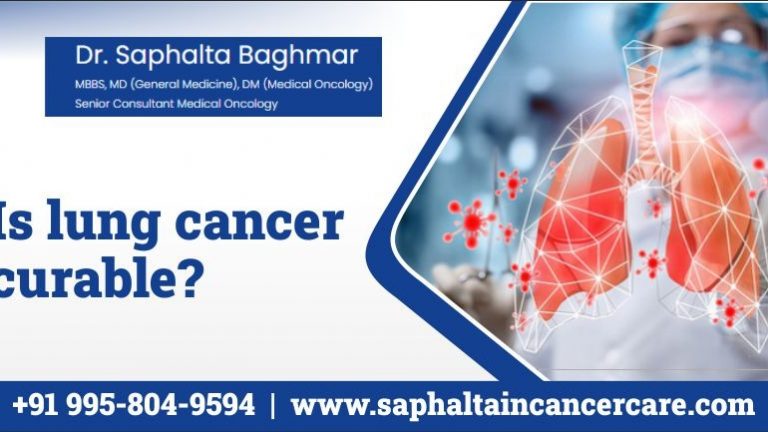Your diet greatly impacts your overall health on any normal day. But when you’re battling cancer, the conscious planning of your meals can significantly influence the effects of the treatment. Regardless of the stages of cancer and the individual case, proper nutrition can help enhance the treatment’s effects, alleviate the side effects, and reduce pain and discomfort.
But proper diet and cancer don’t always go hand in hand. There are some dietary restrictions you must follow when undergoing treatment for cancer. And similarly, different cancer treatment methods often affect your appetite.
This account makes it crucial to create a diet plan that supports the cancer treatment while also working around the side effects that prevent you from eating properly. Getting help from a dietician, who usually is part of a cancer care team, proves helpful in such cases.
Apart from this, there are several questions surrounding diet and cancer. Can cancer patients eat sugar? Can cancer patients take food supplements? What are the best foods for cancer patients?
This article describes how proper nutrition and a healthy diet can support different stages of cancer and help in improvement. Furthermore, it mentions how different cancer treatments can affect your appetite and diet requirements and how you can fulfill them.
How Can A Healthy Diet Support Different Stages Of Cancer?
A healthy diet ensures that your body gets all the essential nutrients in the right amount. Simultaneously, it restricts the intake of food items that would harm your body.
Cancer can significantly weaken your body. And different treatment approaches for this disease impact your immune system, weight, and overall health. In such a case, getting proper nutrition is more important than ever to give strength to your body to endure these treatments and allow them to work effectively.
Mentioned below are some ways a healthy diet can support your progress during cancer treatment.
1. It Gives Strength To Your Body
Some cancer treatments, like chemotherapy, can be tough on your body and have many anticipated side effects. This includes fatigue, loss of appetite, nausea, mouth sores, and many other problems.
A proper diet can help reduce the risks of these associated side effects and gives you the strength to endure the treatment more easily. Moreover, it improves the quality of your sleep, allows you to engage more in physical activities, reduces the risk of developing other serious illnesses, and improves the overall quality of your life.
2. It Boosts Your Immune System
Different cancer treatments affect your immune system differently. Chemotherapy and radiotherapy often attack even healthy cells. And while radiotherapy has become more precise in its activity, the risk remains. Similarly, cancer surgery can strain your immune system as it tries to heal surgical wounds.
These treatments weaken your immunity and make you more vulnerable to other infections. But a healthy diet promotes the growth and development of red blood cells, white blood cells, and other immune cells and boosts overall immunity.
3. It Helps In Maintaining A Healthy Weight
Cancer treatments also affect your weight. While some people experience weight loss, many gain a significant amount of it. But maintaining a healthy weight allows your body to completely focus on your healing and going through the treatment without any extra strain.
Obesity often requires your body to work overtime to meet its energy needs. Similarly, losing too much weight makes your body more weak and vulnerable.
A healthy and well-planned diet manages weight fluctuations and helps manage a healthy weight range.
4. Personalized Care For Different Stages Of Cancer
Your body requires different levels of attention at different cancer stages. While stages 1, 2, and sometimes 3 go a lot easier on your body, in most cases even unnoticed, stage 4 has a major effect.
It is crucial that you plan your diet keeping in mind the severity of this disease. Your dietician can help you devise a meal plan that would help you alleviate the side effects of the treatments you are going through. It also caters to your nutrient requirements while keeping in mind what your body can and cannot take. For patients under palliative care, the proper diet would help reduce the pain and the severity of some side effects.
Food For Cancer Patients: What To Eat?
A cancer care team often includes a dietician who knows the diet plan required for different stages of cancer. As your body is weaker than usual, you must put together a meal that is easy to digest and assimilate while providing you with essential nutrition.
Below is a brief account of the essential components of your diet when undergoing cancer treatment.
1. Healthy Carbohydrates
Include simpler carbohydrates in your meals that are more easily digestible. Avoid heavily processed foods and instead opt for ingredients like oats, whole wheat, bran, and others rich in soluble fibers.
These components also promote the growth of good bacteria in your gut, which further aids in efficient digestion. It also improves the metabolic rate of your body by providing quick access to energy.
2. Plant-based Proteins
Plant-based sources of proteins also often contain other nutrients, including vitamins and minerals. This makes it easier to plan out a diet that encompasses all nutrients.
While you can also opt for chicken and fish as a protein source if your appetite and digestive ability allow, confirm it with your dietician. It is recommended that you avoid red meat completely.
Some plant-based protein sources also make a good and healthy snack like nuts and legumes. This way, you can go for small meal portions and fulfill your nutrient requirements.
3. Healthy Fats
Including certain fats in your diet can help reduce inflammation and improve your cardiovascular health. Foods containing omega-3 fatty acids, like avocados and olive oil, serve that purpose. Monounsaturated and polyunsaturated fats also make up for a healthy addition to your meals.
4. Vitamins And Minerals
While vitamins and minerals are required in relatively less amounts, they are equally essential as proteins and carbohydrates. These nutrients aid in proper metabolism, healing processes, immune function, enzymatic processes, and your body’s overall functioning.
Opt for foods that are a good source of proteins and/or carbohydrates and also contain essential vitamins and minerals. This way, you can manage to get in proper nutrition even with a low appetite.
How Does Cancer Affect Your Appetite?
Cancer and cancer treatments often result in abnormal appetite. Sometimes, they lead to side effects that make it difficult to obtain proper nutrition. In some cases, the effect is significant enough to cause malnutrition.
The most common forms of cancer that affect nutrition intake include:
- Head and neck cancer
- Stomach cancer
- Intestinal cancer
- Esophageal cancer
- Pancreatic cancer
- Colorectal cancer
Along with this, certain cancer treatments also lead to severe side effects that make it difficult to obtain nutrition. These treatments include:
- Chemotherapy
- Hormone therapy
- Immunotherapy
- Radiotherapy
- Stem cell transplant
- Surgery
The most common side effects of cancer treatment that may lead to malnutrition include:
- Nausea and vomiting
- Loss of appetite
- Changes in taste and smell
- Mouth sores
- Dry mouth
- Diarrhea
- Constipation
- Anorexia (an eating disorder)
- Cachexia (loss of weight and muscle mass)
How Can You Manage These Side Effects?
Consult with your dietician and the cancer care team. It is crucial for you to be well-nourished to continue with the treatment plan. The dietician would consider your case and the side effects of the treatment and plan your diet accordingly.
Here are a few tips that could help obtain proper nutrition while dealing with the side effects of cancer treatment.
- In the case of anorexia, opt for foods rich in calories and proteins. This would allow a good protein intake even from a small meal portion.
- Try new ingredients and recipes to help your appetite.
- When you are hungry, opt for a heavy but balanced meal portion. Incorporate protein and carbohydrate sources in this part of the meal.
- When you have a low appetite, divide your meals into small portions and set aside portions of healthy snacks.
- In case of mouth sores, take foods that are soft and do not require much chewing. Avoid very salty, spicy, or citrus foods, and suck on some ice pieces to help numb the sores.
- To help with a dry mouth, opt for liquid foods like soups, clear broths, smoothies, and milkshakes.
- If you are experiencing nausea, try eating soft foods in small portions. Take your foods and liquids at room temperature, and do not force yourself to eat.
Diet And Cancer: Plan Your Diet To Prepare For The Battle
Ensuring proper nutrient intake can be difficult when you have to go through multiple treatment processes and endure the associated side effects. But remember that maintaining a healthy diet would help make things easier for you.
Meet up with your dietician and get a personalized diet plan that includes safe and appropriate foods for cancer patients. Consider your stage of cancer while preparing the meal plan. In case of any inconvenience or issues, consult with your dietician and cancer care team for help.


